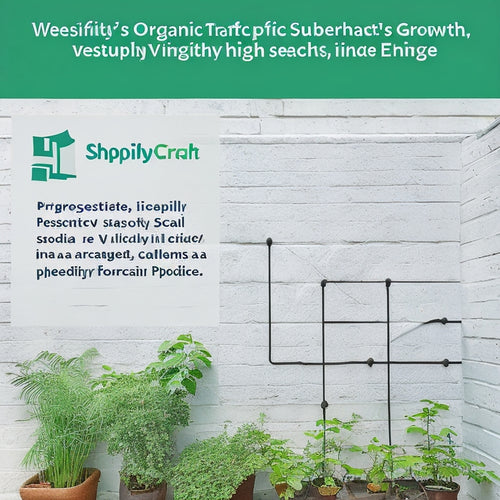
Mastering Tool Care: Expert Advice for Gardeners
Share
I've spent years perfecting my gardening skills, but I've come to realize that mastering tool care is the often-overlooked secret to revealing true gardening success. It all starts with prioritizing tool care for longevity, developing storage solutions, and regularly cleaning tools to prevent rust. I've learned to invest in high-quality sharpening tools, establish consistent sharpening patterns, and clean and oil tools regularly. By doing so, I've enhanced performance, prolonged lifespan, and optimized efficiency. Now, I'm excited to share my expertise with you, and as we explore the world of tool care together, you'll discover how these expert tips can elevate your gardening experience to new heights.
Key Takeaways
• Prioritize tool care for longevity by developing storage solutions, regularly cleaning, and applying gentle products to prevent rust and damage.
• Invest in high-quality sharpening tools and establish consistent sharpening patterns to enhance performance and prolong tool lifespan.
• Select the right tools by considering material, weight, and ergonomics, and opt for top brands for quality and durability.
• Dry tool heads, organize sheds, and schedule maintenance regularly to prevent rust and damage, and apply rust-inhibiting coatings for metal components.
• Optimize tool organization, implement ergonomic design, and utilize advanced techniques like sharpening schedules to elevate your gardening experience.
Tool Care Essentials Uncovered
When it comes to maintaining a thriving garden, I've learned that having the right tools is only half the battle - understanding the vital care and maintenance practices is important to extending the lifespan and performance of those tools.
As a gardener, I prioritize tool care to secure my investment lasts. I've developed best practices for storage solutions, securing my tools are protected from the elements and organized for easy access.
Tool cleaning is also vital, as it prevents rust and maintains their effectiveness. I make it a habit to regularly clean my tools, using gentle products that won't damage the materials.
Mastering Sharpening and Maintenance
By integrating a sharpening regimen into my tool care routine, I've been able to enhance the performance and prolong the lifespan of my garden tools. This essential step guarantees my tools are always ready for use, reducing fatigue and the risk of accidents.
Here are some sharpening techniques and maintenance secrets I've discovered:
-
Select the appropriate sharpening tool: Invest in a high-quality whetstone or diamond stone to efficiently complete the task.
-
Establish a consistent sharpening pattern: Use a uniform motion to sharpen your tools, maintaining the same angle and pressure.
-
Clean and oil your tools regularly: Eliminate dirt and debris, then apply a rust-inhibiting oil to safeguard your tools from corrosion.
- Store your tools appropriately: Keep your tools organized and safeguarded in a dry, secure location to prevent damage and rust.
Selecting the Right Tools
I've found that selecting the appropriate tools for the task can make all the difference in the efficiency and effectiveness of my gardening tasks. To make informed decisions, I consider tool selection criteria such as material, weight, and ergonomics. I also look for top brands that offer quality and durability. When purchasing online, I rely on buying guides and reviews to make certain I'm getting the best tool for my needs.
| Tool Selection Criteria | Online Options |
|---|---|
| Material (stainless steel, aluminum) | Amazon, Home Depot, Lowe's |
| Weight and ergonomics | Buying guides, tool reviews, top brands |
| Brand reputation and quality | Online retailers, gardening forums |
Pro Tips for Tool Longevity
To maximize tool longevity, I prioritize regular cleaning, storing tools in a dry place, and applying a rust-inhibiting coating to metal components, which helps prevent corrosion and extends the lifespan of my garden tools. By following these pro tips, I've been able to greatly extend the life of my tools and maintain their performance.
Here are some additional maintenance techniques that I swear by:
-
Dry Tool Heads: After cleaning, dry tool heads to prevent moisture buildup and rust.
-
Organize Your Shed: Keep tools organized and easily accessible to prevent damage and loss.
-
Schedule Maintenance: Set aside time each season to inspect and maintain your tools.
- Use Protective Covers: Store tools with protective covers to shield them from the elements.
Elevating Your Gardening Experience
As I maintain my tools, I've come to realize that their longevity is directly tied to the overall quality of my gardening experience, and that's why I focus on creating an environment where both my tools and I can thrive. To elevate my gardening experience, I prioritize tool organization, using advanced techniques to optimize my workspace. This allows me to work efficiently and safely, reducing fatigue and discomfort.
| Aspect | Strategy | Benefit |
|---|---|---|
| Tool Organization | Categorize and store tools by function | Quick access to tools, reduced clutter |
| Sustainable Practices | Implement ergonomic design in tool selection | Reduced strain, improved posture |
| Advanced Techniques | Utilize sharpening and maintenance schedules | Extended tool lifespan, improved performance |
Frequently Asked Questions
Can I Use WD-40 to Lubricate My Gardening Tools?
I wouldn't recommend using WD-40 to lubricate my gardening tools; instead, I opt for rust-inhibiting oils like silicone or mineral oil, which provide better protection and are safer for my tools and the environment.
How Often Should I Clean My Gardening Gloves?
I clean my gardening gloves after every use, checking for dirt and debris, and storing them in a dry, ventilated area to maintain their material and extend their longevity, ensuring safe and effective gardening.
Are There Any Eco-Friendly Alternatives to Mineral Oil?
As I search for eco-friendly alternatives to mineral oil, I find sustainable options like coconut oil, linseed oil, and beeswax-based products that provide natural alternatives for tool maintenance, ensuring a safer and more environmentally friendly gardening experience.
Can I Sharpen Tools With a Dremel or Other Power Tools?
"Can I sharpen tools with a Dremel or other power tools?" Ah, the temptation to speed up the process! While possible, I recommend caution and instead opt for a hand file or whetstone for precise control and safe sharpening.
Should I Store My Tools in a Humid or Dry Environment?
'I store my tools in a dry environment to prevent rust and guarantee tool longevity. Proper tool maintenance demands careful storage conditions; I avoid humid areas and use rust-inhibiting products to safeguard my investment.'
Related Posts
-
Creating Shoppable Videos: Boost Your Ecommerce Sales
Shoppable videos have emerged as a powerful tool for businesses looking to enhance their ecommerce sales. By combini...
-

Why Shopify Is Good for SEO
Shopify, a popular e-commerce platform, has garnered attention for its potential benefits in terms of search engine ...
-

Boost Conversions With a Popup App for Your Shopify Store
The utilization of popup apps for Shopify stores has become a prevalent practice in the pursuit of enhancing convers...

